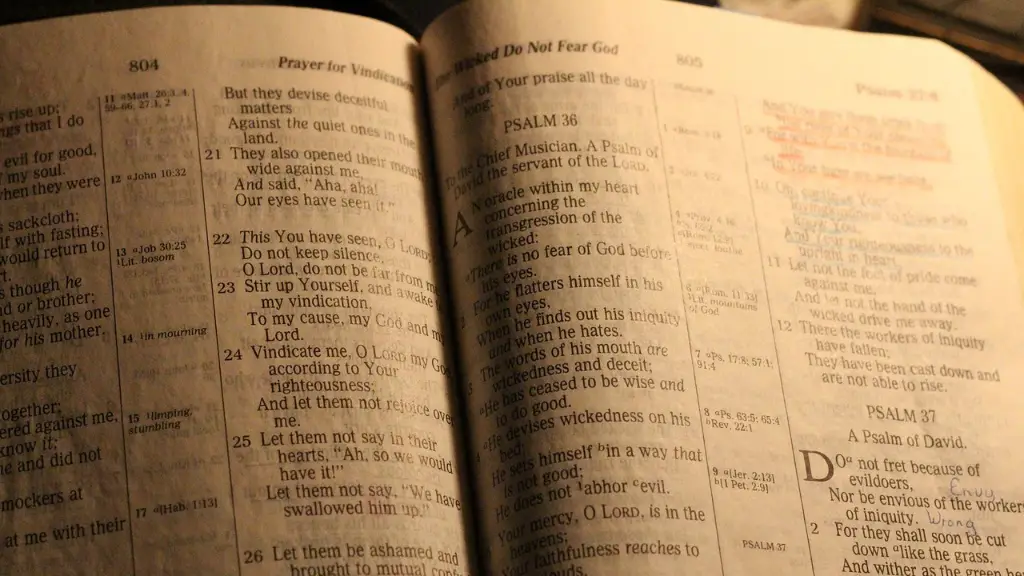Origin of The Name David
David is one of the most popular male names in the Bible. It originates from the Hebrew phrase ‘dod- wei-vaw- diev’,which can be translated to mean ‘beloved of Jehovah’. The name is mentioned over a thousand times in the Bible and is primarily associated with King David of Israel.
Originally, David was an ancestor of the royal tribe of Judah. He is first mentioned in 1 Samuel 16 and is described as a young shepherd boy. David quickly proved himself to be an able warrior, slaying the giant Goliath and subsequently becoming a great leader and a military hero of the Israelites.
The name David is steeped in symbolism, as it suggests that even someone small and insignificant can become a mighty conqueror with courage and faith. As such, it is not surprising that the name became popular among the Jewish people and was adopted by early Christianity.
David In the Bible
King David is one of the most important figures in the Old Testament. He is the second king of Israel and united the twelve tribes of Israel into a united kingdom. As King, David expanded the borders of Israel and fortified its defenses against its enemies. He is credited with establishing Jerusalem as the capital of Israel and paving the way for the establishment of a powerful Jewish kingdom.
Throughout his lifetime, David was considered a righteous and just ruler. He was beloved by the people and was renowned for his generosity and compassion. The people saw David as a symbol of strength and stability and he became a figure of national pride and religious reverence.
David is revered in the Bible as a man after God’s own heart, and is praised for his piety and faith. The Book of Psalms, which are attributed to King David, are full of passionate prayers and praises to Jehovah.
Symbolism Of The Name
The name David is commonly seen as a symbol of purity, strength and faithfulness. It is an optimistic name, as it suggests that even the meekest and weakest can become powerful with courage and conviction.
The name is also associated with other virtues such as justice, courage, leadership, and wisdom. These qualities are embodied in the life of King David and have become synonymous with the meaning of the name.
Legacy of David
David’s legacy lives on in both Jewish and Christian tradition. He is remembered as a righteous and compassionate leader and a devoted servant of God. Numerous works of art and literature have been dedicated to his life and accomplishments.
The Bible speaks of David’s rule as a ‘golden age’ and compares his legacy to that of Moses. The name David is widely used in both Jewish and Christian traditions and is one of the most popular male names in the Bible.
David in Popular Culture
The name David has been used in countless works of literature and art. Charles Dickens, John Steinbeck, and Arthur Conan Doyle are among the authors that have immortalized the name David in their works.
The name David is also extremely popular in the United States. It has been among the top ten most popular male names for more than four decades.
Conclusion
The name David has a rich history and deep meaning in both Jewish and Christian traditions. It is a symbol of courage, faith, strength, justice, and compassion. The legacy of King David of Israel lives on in both religious texts and works of literature and art. The name is highly popular in the United States and has been among the top most popular male names for many decades.

